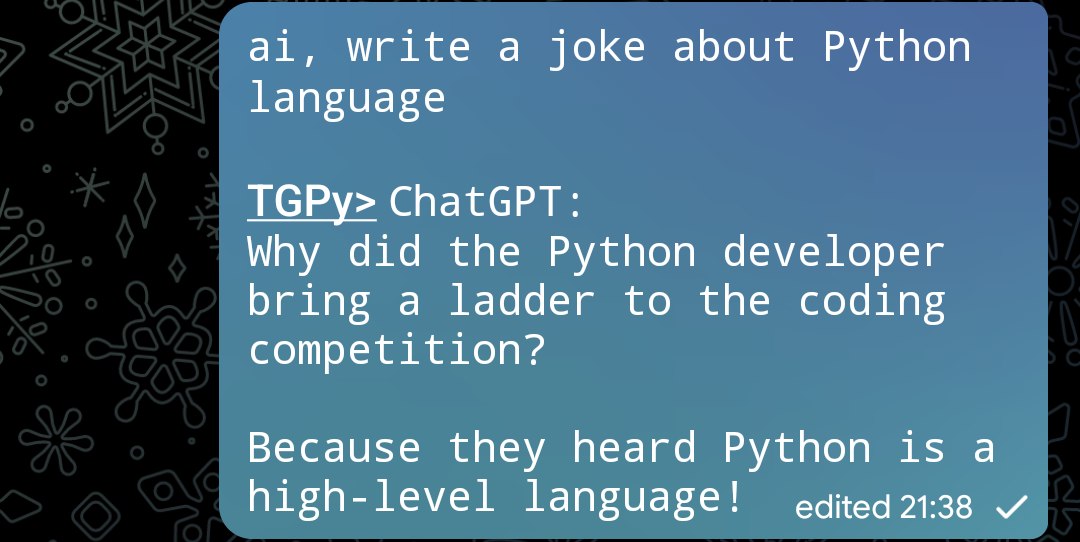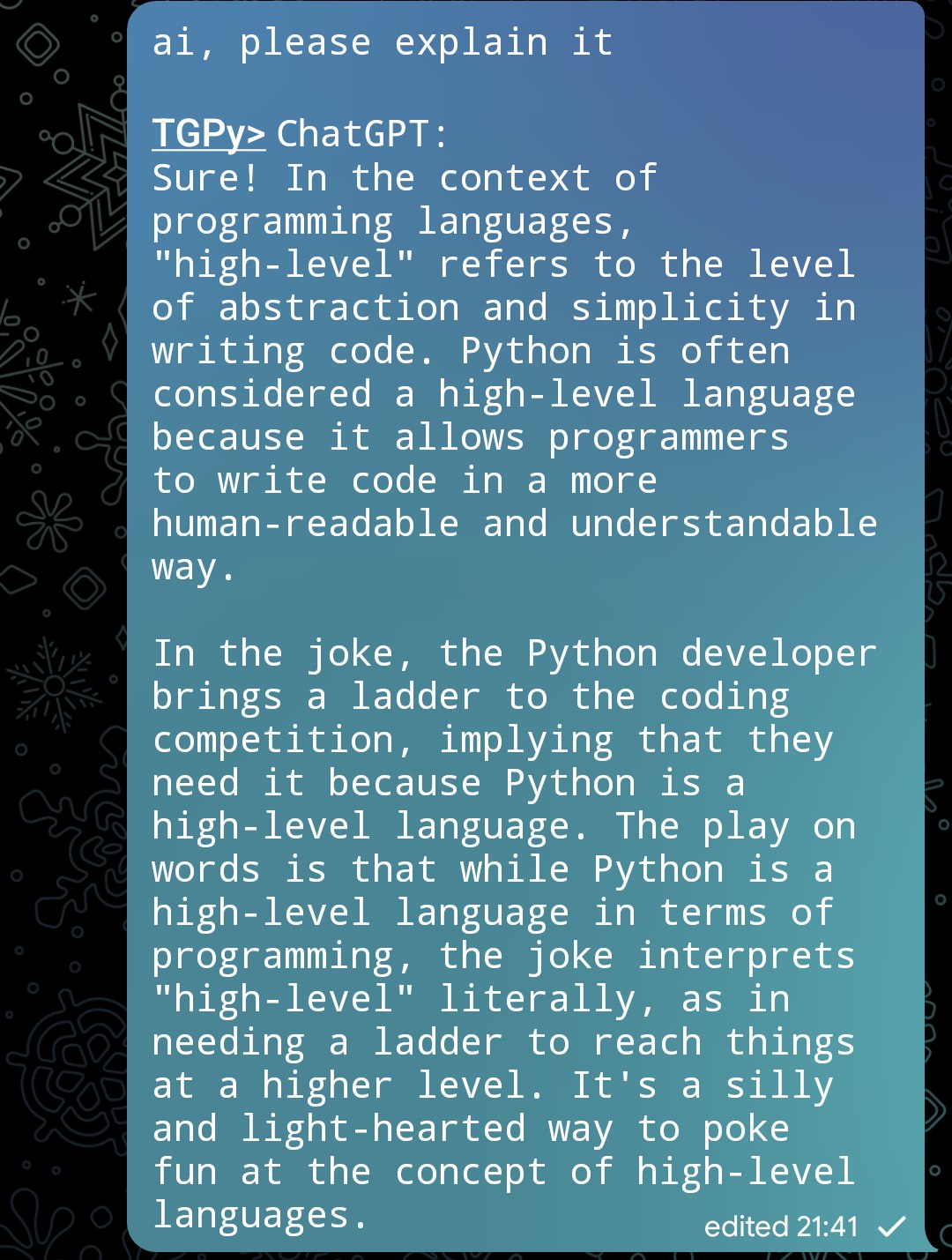Asking ChatGPT from TGPy¶
So, I implemented ChatGPT module for TGPy.
ChatGPT replies when I start my message with ai,:

It also remembers dialog history:

To re-implement this feature, you will need to obtain an API key from platform.openai.com.
1. Functions¶
I wrote a couple of functions:
ai(text)— sends a request to ChatGPT.reset_ai()— resets dialog history. You will want to reset the history often: API pricing depends on the length of the dialog.
The official OpenAI Python library isn‘t async, so I made raw queries with aiohttp (pip install aiohttp).
import aiohttp
openai_key = "YOUR_API_KEY_HERE"
http = aiohttp.ClientSession()
chatgpt_messages = []
async def ai(text: str) -> str:
user_message = {"role": "user", "content": text}
chatgpt_messages.append(user_message)
result = await http.post(
'https://api.openai.com/v1/chat/completions',
headers={
'Content-Type': 'application/json',
'Authorization': 'Bearer ' + openai_key,
},
json={
"model": "gpt-3.5-turbo",
"messages": chatgpt_messages,
},
)
try:
answer = result.json().await['choices'][0]['message']['content']
except Exception as e:
return 'Error: ' + str(e)
assistant_message = {'role': 'assistant', 'content': answer}
chatgpt_messages.append(assistant_message)
return 'ChatGPT:\n' + answer
def reset_ai(prompt='You are a helpful assistant'):
chatgpt_messages[:] = [{"role": "system", "content": prompt}]
return 'Cleared ChatGPT dialog'
If you want to call GPT-4 instead of ChatGPT, replace "gpt-3.5-turbo" with "gpt-4". See
OpenAI API reference for details.
Try it out: run the code above and call, ai('Hello ChatGPT!')
2. Transformer¶
To address to ChatGPT by starting your message with ai, you will need a simple code transformer:
def ai_transformer(text):
prefix = 'ai, '
if text.startswith(prefix):
text = text.removeprefix(prefix)
return f'ai("{text}")'
return text
tgpy.api.code_transformers.add('chatgpt', ai_transformer)
This function transforms a string like 'ai, hello' to code like ai("hello").
By adding it as a transformer, you are applying it to all messages you send.
Done!
Save all the code to a module and it will always work.
If you occasionally share sources of your modules with other people or publish modules in a git repo, you will want
to store openai_key in an environment variable or tgpy.api.config.